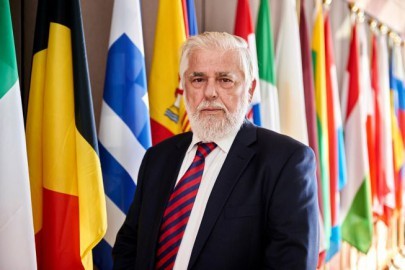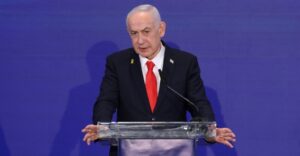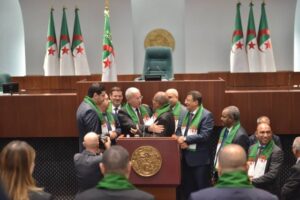Greece’s own George Dassis was electedas 31st president of the European Economic and Social Committee (EESC) by an overwhelming majority. He will head the institution, accompanied by two vice-presidents, Michael Smyth (budget) and Gonçalo Lobo Xavier (communication) from 2015 to 2018.
Upon accepting his post, he said:
“This mandate will be useful to the people of Europe, and will be devoted entirely to them. We intend to mobilize all the forces of civil society to make the European Union attractive and more present in the daily lives of Europeans. First, there is a need to alleviate extreme poverty and invest in youth employment, infrastructure projects, research and innovation, something that needs to be done on a massive scale. Europe must not be equated with a race to the bottom, but to the top. It must improve life for all citizens in the north, south, east and west: this is what we mean by harmonizing progress.”
The president’s program thus offers a very practical slant on European Union policies, inspired by opinions adopted by the Committee and addressed to the European institutions, in line with the Committee’s mission according to the Treaty. Far from taking the Union as “a given”, it underlines the severe crisis assailing Europe: economic recession and social decline has dramatically undermined people’s faith in the EU. Calling for entrepreneurial spirit, work and solidarity, the programme continues to put the emphasis on social, economic and territorial cohesion as the foundation for a fair and equitable Union. Instruments such as the European minimum income or taxation must be used to serve this purpose.
The program supports the investment plan for Europe, requesting the addition of a special investment plan for growth and jobs, and the adoption of specific economic convergence measures such as a mechanism for joint debt issuance of debt and a temporary fund for eurobills.
The digital single market, the creation of a European transport area and the development of a genuine Energy Union are also priorities for the new EESC president, alongside contributing to the sustainable development of the Union particularly with respect to climate change constraints, which must be incorporated into all EU policies.
In his program, the president reiterated his commitment to a strong Europe in the world, a Europe that must defend not only its economic interests, but more importantly its social and environmental requirements. The Union needs to take in asylum seekers and put in place a new migration policy, based on the principles of solidarity and respect for human rights. The fight against traffickers through closer cooperation between Member States must be an integral part of this policy.
To address these challenges, objectives and emergencies, Member States must also provide the European Union with the means to act, in the shape of a budget that matches its ambitions.
Who is George Dassis?
- Trade-union activist in Greece from the age of 15
- Activist against the colonels’ regime in Greece (1967-1974)
- Permanent member of the national staff of the Belgian General Federation of Labour (FGTB) from 1976 to 1980
- Since 1981, representative of the Greek General Confederation of Labour (GSEE) to the European Trade Union Confederation (ETUC), to the International Trade Union Confederation (ITUC, formerly ICFTU) and to the International Labour Office (ILO)
- Since 1982, member of the Executive Committee of the ETUC
- Member of the EESC from 1981 to 1990 and from 2002
- President of the regional section of the EESC from 1986 to 1990
- Founder member of the Labour Institute of the GSEE (1990) and secretary for international relations
- President of the ECO section of the EESC from 2004 to 2008
- President of the Workers’ Group of the EESC from 2008 to 2015
- President of the EESC from 2015 to 2018
Ask me anything
Explore related questions





